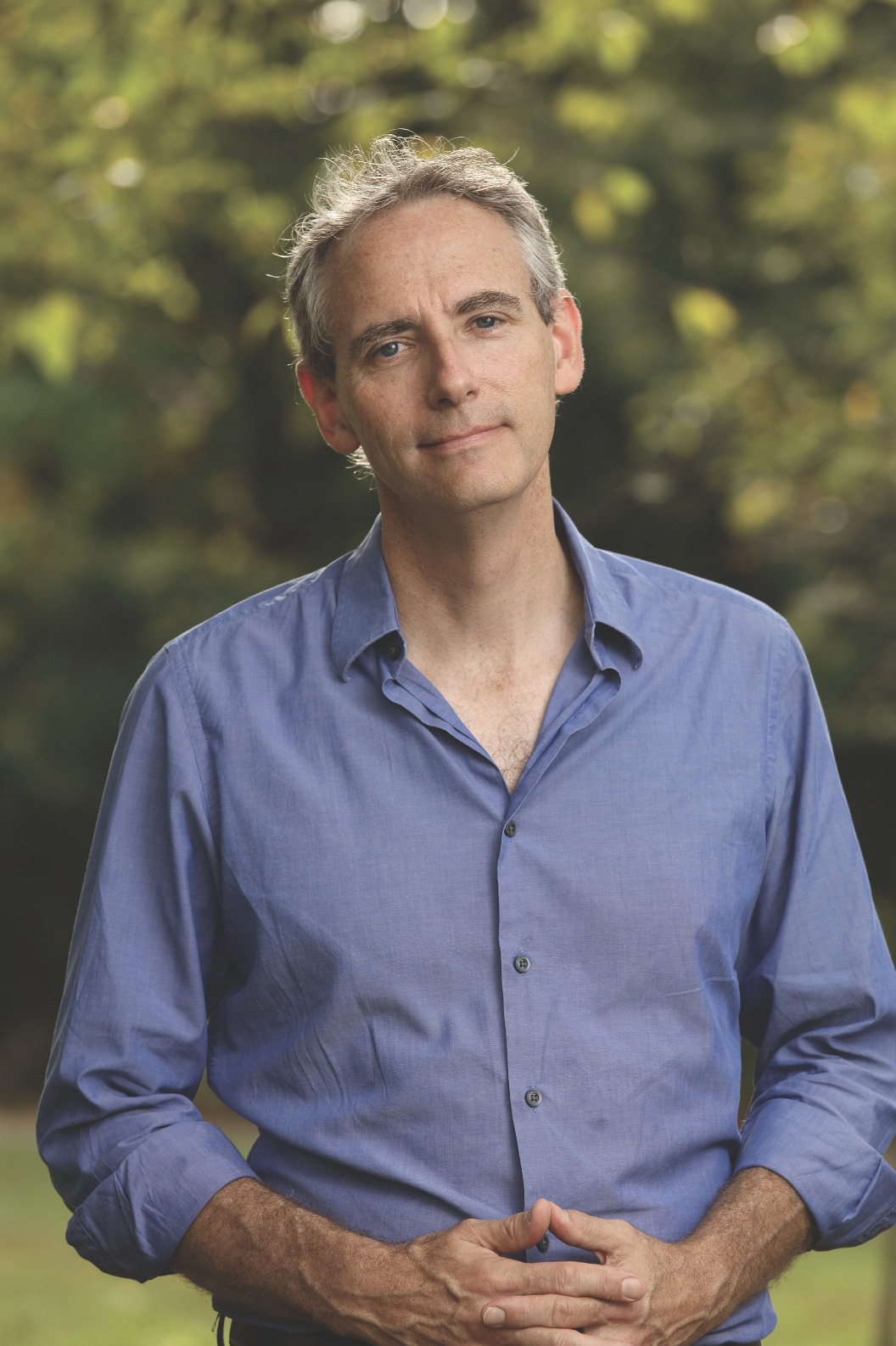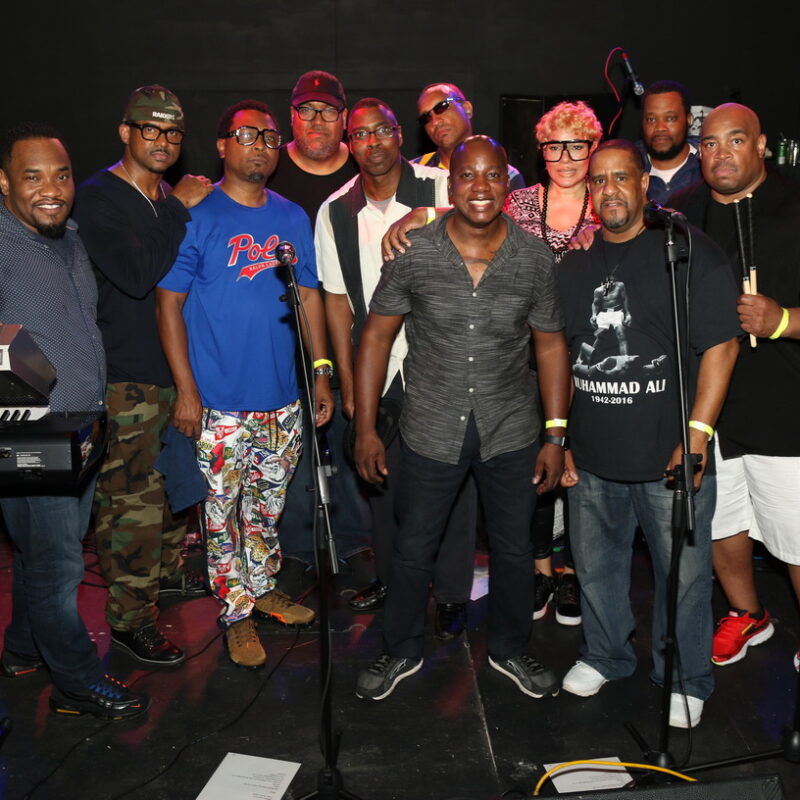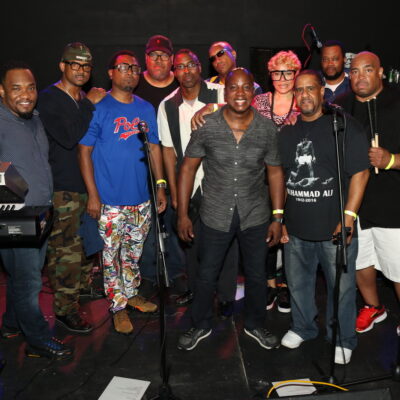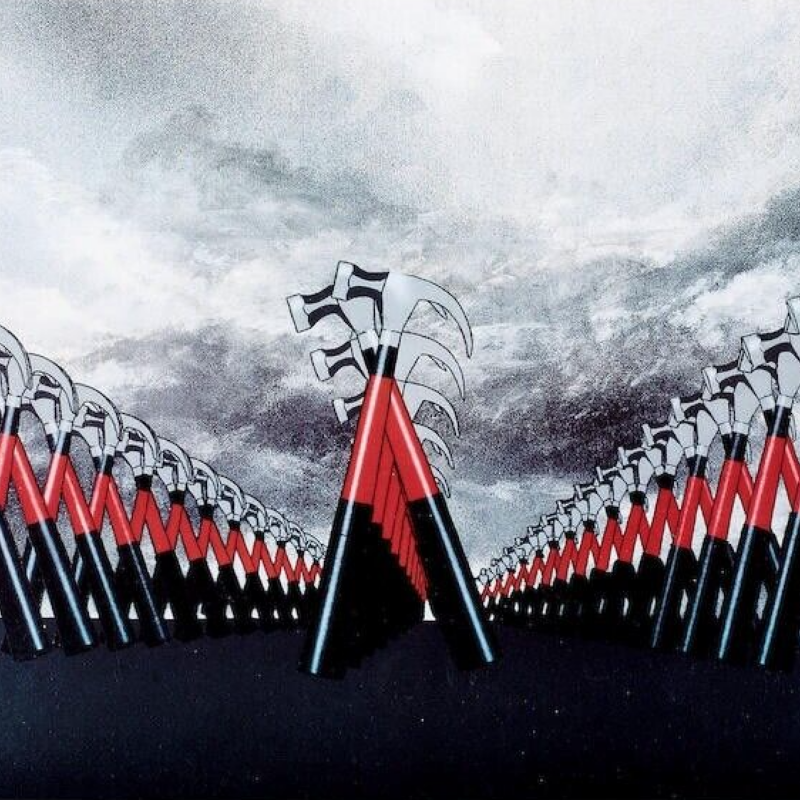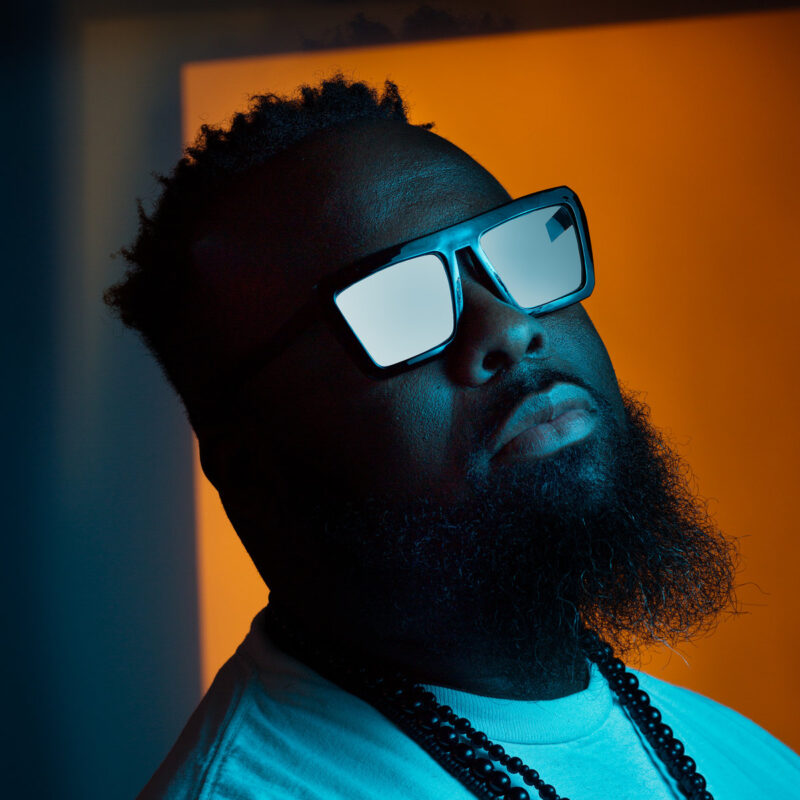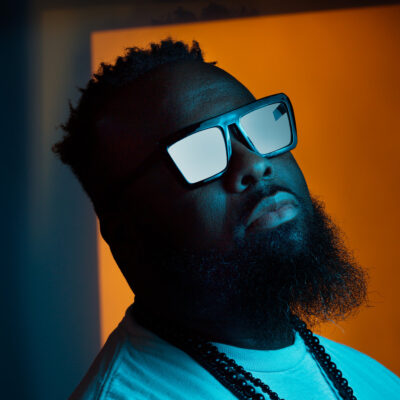In July, local author and University of Virginia professor Bruce Holsinger became one of the lucky few when his latest novel, Culpability, was selected by Oprah Winfrey for her book club.
Taking place at a beach house on the Chesapeake Bay, the novel tells the story of Noah Cassidy, his wife Lorelei Shaw, and their three children, as they navigate the aftereffects of a traumatic car crash involving their self-driving minivan. Culpability is a beachy, literary thriller with undercurrents of police procedural, and near-future speculative fiction. Entertaining and suspense-filled, the book explores complex questions around humanity’s relationships with technology. It also grapples with themes of avoidance and distraction, family dynamics, mental health, and morality, class, and trust.
The story opens immediately before the impact of the life-changing car crash, and introduces readers to the Cassidy-Shaw family with a snapshot that reveals technological saturation, from phones and laptops in use by family members to the highly sophisticated minivan powered by AI. Lorelei, who’s been awarded a MacArthur “Genius” Fellowship, specializes in computational morality and the ethics of AI, and Noah is a pretty average lawyer. Their kids are tweens and teens of privilege who enjoy the ease and comfort that accompanies their parents’ wealth. The family’s relationship to technology is at times fraught, as Holsinger expertly pulls narrative strings to ask tricky questions about how we live, and how we live ethically, with AI.
“We want our helpful machines to be like us, and so we tend to project onto them our ways of understanding the world,” writes Lorelei in one of the meta-narrative excerpts that serve as breaks between chapters in Culpability. “Yet such human-seeming systems comprise a small fraction of the AI shaping our everyday experience. Even as you read these words, there are AI systems at work all around you… And there is almost no one teaching them how to be good.”
Throughout Culpability, Holsinger returns to the question of how to be good, drawing attention to the ways we exist in the world and with each other, and how technology shapes our experiences and decisions. While it shies away from taking a firm stance, the book asks readers to pay attention to the impact of the technologies we have largely normalized in our smartphones, smart homes, and smart vehicles. Holsinger has created a fascinating thought experiment by inviting the reader to inhabit the world of the Cassidy-Shaw family, and asking what one would do in their place.
Holsinger has published five novels including Culpability, and a variety of nonfiction books. A Guggenheim Fellow, he teaches in UVA’s English department and serves as board chair for WriterHouse, where he also teaches. He responded to our questions by email, while on a book tour.
C-VILLE Weekly: What was the initial kernel of an idea that led you to explore the themes in this book?
Bruce Holsinger: Culpability had two points of origin: a family outing to the Northern Neck of Virginia, where I was initially inspired to set a novel by the Chesapeake Bay; and the sudden mania for Artificial Intelligence beginning in late 2022, when ChatGPT came on the scene. I was resolved to set a novel in that location, and it was only gradually that the AI and moral responsibility themes got layered into the book as part of my writing process.
How has your own relationship to AI changed through your writing process?
My own writing process has not been affected, though I’ve been struck, as have all of my colleagues, by the incursion of Large Language Models (LLMs) like ChatGPT into all aspects of university life—student writing, research, administrative prose, and so on.
Which real-world writers and thinkers helped inform the foundation of Lorelei’s work in computational morality?
There are so many! I read widely in research on ethical AI, algorithmic inequity, and related topics, including the work of Fei-Fei Li, Timnit Gebru, Thilo Hagendorff, and many others. I’m not an expert in the topic, but I learned enough to be able to sketch Lorelei’s life, profession, and work in a way I hope is convincing to readers.
How has being featured in Oprah’s Book Club changed the experience of publication and launching this book, compared to your past novels?
The selection had a huge effect on every aspect of the book and its publication. The on-sale date was moved up by three months from October to July, meaning there were very few advance reviews, pre-orders, and so on. In the three weeks since the announcement, though, the novel has been reviewed and read far more widely than any of my other books. I’m in the middle of a long book tour that’s exhausting and wonderful at the same time, and Culpability has a kind of visibility that has been exhilarating to experience. I never expected one of my novels to be a selection for a national book club, let alone Oprah Winfrey’s, and I still don’t quite believe it’s happening.
